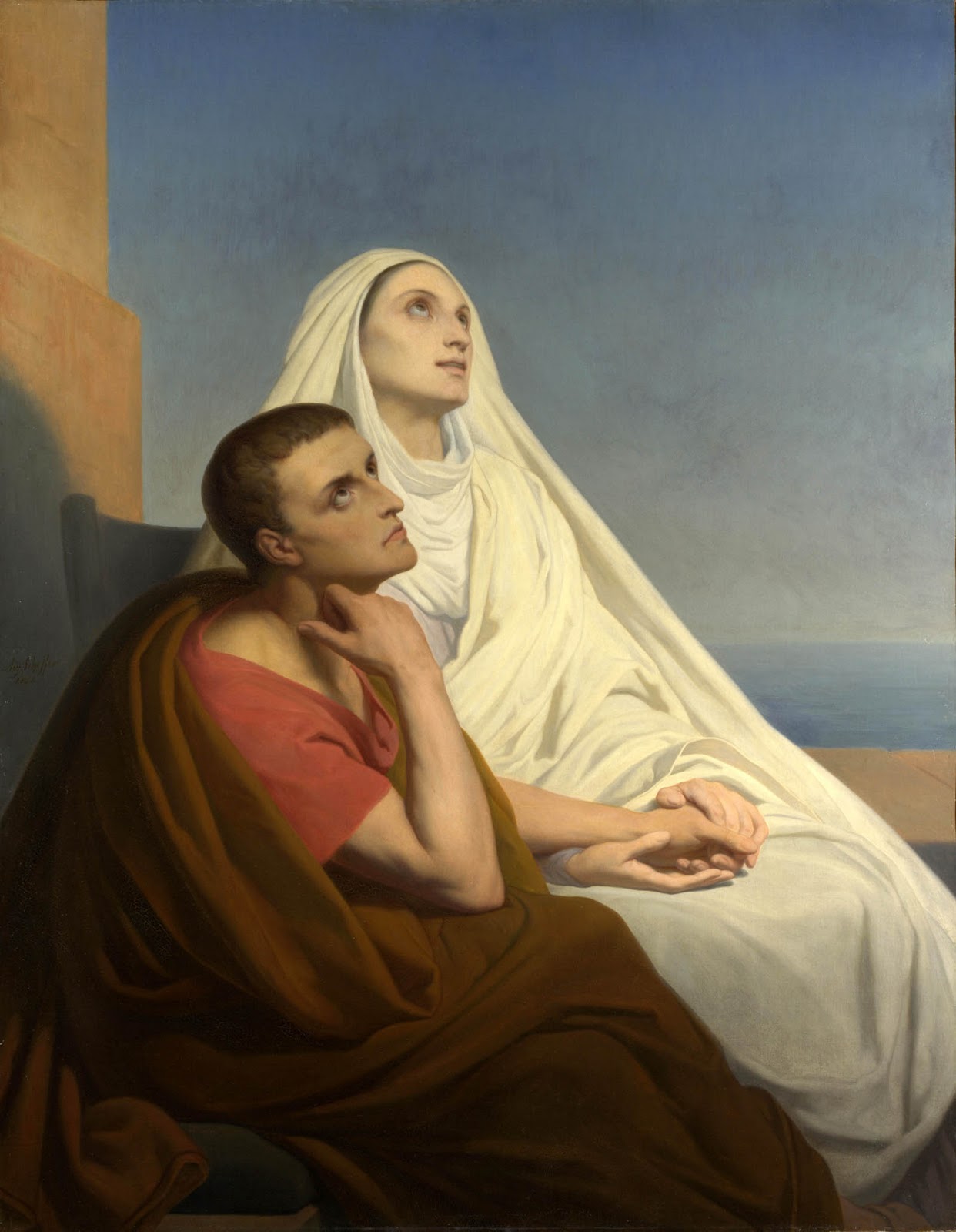Nineteenth Sunday in Ordinary Time - Year C
St. Clare, Virgin (1194-1253)
Commentary of the day
Saint Fulgentius of Ruspe :
"Stewards of the mysteries of God"
Lk 12:32-48.
Jesus said
to his disciples: “Do not be afraid any longer, little flock, for your
Father is pleased to give you the kingdom.
Sell your belongings and give
alms. Provide money bags for yourselves that do not wear out, an inexhaustible
treasure in heaven that no thief can reach nor moth destroy.
For where
your treasure is, there also will your heart be.
Gird your loins and
light your lamps
and be like servants who await their master's return
from a wedding, ready to open immediately when he comes and knocks.
Blessed are those servants whom the master finds vigilant on his arrival.
Amen, I say to you, he will gird himself, have them recline at table, and
proceed to wait on them.
And should he come in the second or third watch
and find them prepared in this way, blessed are those servants.
Be sure
of this: if the master of the house had known the hour when the thief was
coming, he would not have let his house be broken into.
You also must be
prepared, for at an hour you do not expect, the Son of Man will come."
Then Peter said, "Lord, is this parable meant for us or for everyone?"
And the Lord replied, "Who, then, is the faithful and prudent steward whom
the master will put in charge of his servants to distribute (the) food
allowance at the proper time?
Blessed is that servant whom his master on
arrival finds doing so.
Truly, I say to you, he will put him in charge
of all his property.
But if that servant says to himself, 'My master is
delayed in coming,' and begins to beat the menservants and the maidservants,
to eat and drink and get drunk,
then that servant's master will come on
an unexpected day and at an unknown hour and will punish him severely and
assign him a place with the unfaithful.
That servant who knew his
master's will but did not make preparations nor act in accord with his will
shall be beaten severely;
and the servant who was ignorant of his
master's will but acted in a way deserving of a severe beating shall be beaten
only lightly. Much will be required of the person entrusted with much, and
still more will be demanded of the person entrusted with more.”
Copyright © Confraternity of Christian Doctrine, USCCB
Commentary of the day :
Saint Fulgentius of Ruspe (467-532), Bishop in North Africa
Homily 1, on the Lord's servants ; CCL 91A, 889 (trans. breviary Common of
pastors)
"Stewards of the mysteries of God"
Wishing to emphasize the special office of the servants whom he has placed in
charge of his people, the Lord says, 'Who, do you think, is the faithful and
wise steward whom the Lord sets over his household, to give to them their
measure of wheat at the proper time? Blessed is that servant whom his master
will find so doing when he comes.” Who is that master, brethren? Without a
doubt it is Christ, who says to his disciples: “You call me Teacher and
Lord, and you are right for so I am” (Jn 13,13). What, too, is the master's
household? Doubtless it is the one which the Lord himself ransomed... This
sacred household is the holy, Catholic Church, which is spread through the
whole earth with abundant fertility and glories in the fact that she has been
redeemed by the precious blood of her Master. As he himself says: “The Son
of Man came not to be served but to serve and to give his life as a ransom for
many” (Mk 10,45). He is, too, the good shepherd who laid down his life for
his sheep” (Jn 10,11)...As to who the steward is who ought to be faithful as
well as wise, the Apostle Paul shows us, when, speaking of himself and his
companions, he says: “This is how one should regard us, as the servants of
Christ and stewards of the mysteries of God. Moreover, it is required of
stewards that they should be found trustworthy” (1Cor 4,1-2). Now, lest
anyone of us should think that it is only the apostles who have been made
stewards..., the blessed Apostle Paul shows us that the bishops also are
stewards, when he says: “For a bishop, as God's steward, must be
blameless” (Tt 1,7)...We, therefore, who are the servants of the master of
the household, we are the stewards of the Lord, we have received the measure
of wheat to disburse to you.






